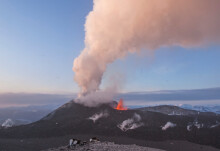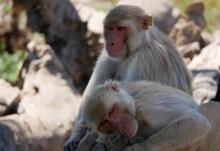

Molecular movements
Making molecules dance to our tune reveals what drives their first movements
Bringing ultrafast physics to structural biology has revealed the dance of molecular ‘coherence’ in unprecedented clarity.



Making molecules dance to our tune reveals what drives their first movements
Bringing ultrafast physics to structural biology has revealed the dance of molecular ‘coherence’ in unprecedented clarity.


Imperial researchers and Moderna partner to help children affected by orphanhood
Research will improve how children affected by orphanhood receive the support they need to lead healthy and fulfilling lives now and into adulthood.


Feature
Q&A: How will quantum science transform technology?
Following a number of quantum breakthroughs at Imperial, we sit down with our top quantum experts to explore what quantum could mean for the future.


Imperial researcher awarded £1m for magma-mapping project
Project EARTH will map magma and assess the risk of solar storms on energy supply.


Retired stars still have a role to play in planet formation
Old stars roaming through new star-forming regions could be responsible for a radioactive heat source thought to be important for young planets.


Professor Michele Dougherty elected next President of the Institute of Physics
Imperial’s Head of the Department of Physics will begin her two-year term as President of the Council of Trustees in 2025.
 2
2


Audio
Podcast: Monkey sex, walking robots, and DNA health
In this edition: We learn how same-sex sexual behaviour is common in macaques, how to teach robots to walk like dogs, and how DNA affects your health.


How forests can become more effective ‘natural climate solutions’
To be more effective, projects that use forests to remove carbon dioxide from the air need to improve stakeholders’ confidence in their viability.


Puddle-free pavements and rethinking plastic: News from the College
Here’s a batch of fresh news and announcements from across Imperial.


Study shows same-sex behaviour is widespread and heritable in macaque monkeys
Observations of a wild colony of macaques over three years show same-sex sexual behaviour among males is widespread and may be beneficial.
 1
1